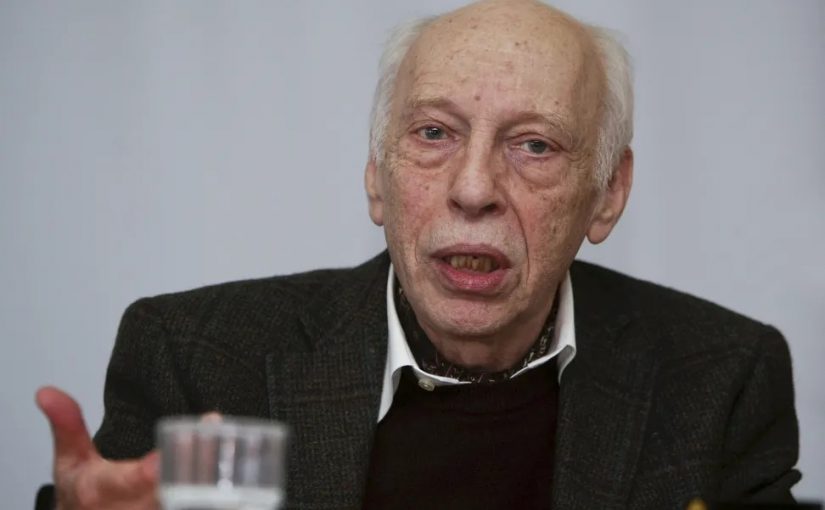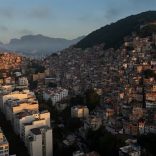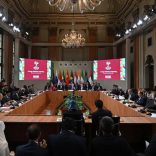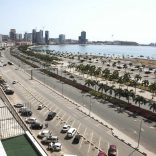Brazil, others to tap $1 billion industry decarbonisation programme
Portugal: Helder Macedo wins Vasco Graça Moura-Cultural Citizenship Award

File photo: Lusa
The writer and university professor Helder Macedo, 89 and “a free conscience”, is the winner of this year’s Vasco Graça Moura-Cultural Citizenship Award, Estoril Sol, the award’s promoter, announced on Friday.
Regarding the winner of this 10th edition of the prize, with a monetary value of €20,000, the jury said that “living in Mozambique since his youth, [Helder Macedo] asserted himself as a free conscience, considering freedom to encompass literary and artistic creation, but also the recognition of the right of peoples to self-determination and independence”.
The winner of the Prize was announced on the day that writer, essayist and politician Vasco Graça Moura turns 83.
For the jury, chaired by Guilherme d’Oliveira Martins, a corresponding member of the Brazilian Academy of Letters, Helder Macedo is “an illustrious poet, novelist, essayist, critic and teacher who has an exemplary career in the field of cultural citizenship”.
Helder Macedo, “exiled in London from 1960, was a BBC contributor and lecturer at King’s College where he taught Portuguese Language and Culture, establishing himself as a prestigious researcher”, the jury states in the minutes, adding that, “after the Revolution of 25 April [1974] he exercised important functions in Portugal in the cultural area, having pursued, alongside literary and essayistic creation, a persistent action in culture and education in favour of Portuguese culture in the world”.
In a statement, Estoril Sol recalls that Helder Macedo, “a young man of anti-fascist convictions, was persecuted by the PIDE (International and State Defence Police)” and went into exile in London, where he graduated in Literature and History. A lecturer at King’s College, he did his doctoral studies there, holding the Camões Chair and being professor emeritus.
Helder Malta Macedo was born on 30 November 1935 in Krugersdorp, South Africa. He spent his childhood in Mozambique, where his father was the provincial governor of Zambézia, and returned to Lisbon at the age of 12, having subsequently attended the Faculty of Law.
His first works of literary fiction, a novel and some short stories, were censored, but he published his first book of poems at the age of 21, “Vesperal” (1957), which was followed by another poetry title, “Das Fronteiras” (1962).
From 1991 to 1998, Helder Macedo published the novels “Partes de África” and “Pedro e Paula”, co-organised “Folhas de Poesia” and collaborated on various publications, such as “Graal”, “Hidra I” and “Colóquio/Letras”.
In the field of essays, he “distinguished himself with literary criticism studies that presented innovative perspectives on the connection between the literary text and the mental and cultural horizon in which it was produced”, and in the field of poetry, he published “Vícios e Virtudes” (2000), “Viagem de Inverno” (1994) and “Viagem de Inverno e Outros Poemas”, a collection of his poetry, published by Editora Record in Brazil. Another collection of his poetry was published in 2011 by Editorial Presença, “Poemas Novos e Velhos”.
Between 1975 and 1980, he lived in Portugal, where he held public and political office for a short time. From 1979 to 1980, he was Secretary of State for Culture in the government led by Maria de Lourdes Pintasilgo (1930-2004).
His most recent essay title was published in 2017, “Camões e outros contemporâneos”. In the novel area, the most recent, published in 2013, used a sonnet by Camões as its title, “Tão Longo Amor Tão Curta a Vida”.
His novel “Sem Nome” (2005) won him the 2006 P.E.N. Club Prize. He had previously won the P.E.N. Club Essay Prize in 1998 for “Viagens do Olhar: Retrospection, Vision and Prophecy in the Portuguese Renaissance”, which he wrote with Fernando Gil (1937-2006), a work that also won him the Literary Critics Association Prize that same year.
For another essay, “Do Significado Oculto da Menina e Moça” (1977), he received the Lisbon Academy of Sciences Prize, of which he is a full member.
As a visiting professor, he lectured at various universities, including the Federal University of Rio de Janeiro, Harvard University in the United States, Santiago de Compostela University in Spain and the École de Hautes Études en Sciences Sociales in Paris. He was an honorary research fellow at Oxford University in the United Kingdom.
Throughout his career, he has been honoured three times by the Portuguese state: last June with the Grand Cross of the Order of Camões, in 2018 with the Grand Cross of the Order of the Infante and in 1993 with the Commendation of the Military Order of Santiago da Espada.
Helder Macedo “never gave up his status as a free Portuguese”, emphasises Estoril Sol.
The Vasco Graça Moura Prize “aims to honour a writer, essayist, poet, journalist, translator or cultural producer who, throughout their career – or through an innovative intervention of exceptional importance – has contributed to dignifying and projecting the sector to which they belong in the public arena”, according to the regulations.
Last year, the prize was awarded to historian José Pacheco Pereira.
In addition to Guilherme d’Oliveira Martins, who presided, the jury was made up of Maria Carlos Gil Loureiro from the Directorate-General for Books, Archives and Libraries, José Manuel Mendes, president of the Portuguese Writers’ Association, Manuel Frias Martins, president of the Portuguese Association of Literary Critics and, at the invitation of Estoril Sol, the writer Liberto Cruz, the journalist José Carlos de Vasconcelos, the director of the Organisation of Ibero-American States for Education, Science and Culture, Ana Paula Laborinho, and the journalist Dinis de Abreu.
The award ceremony will be announced in due course, says Estoril Sol.












Leave a Reply
Be the First to Comment!
You must be logged in to post a comment.
You must be logged in to post a comment.